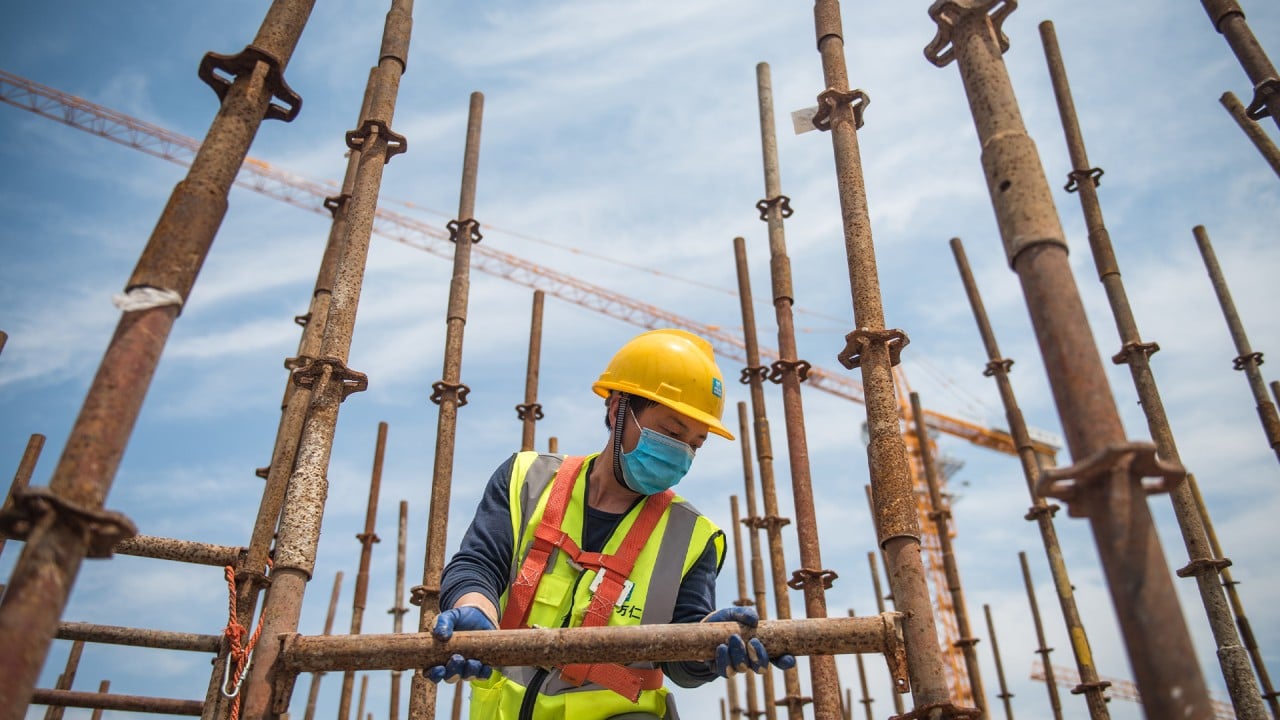
China GDP: economy facing perilous challenges even after Beijing abandons 2020 growth target
- Premier Li Keqiang confirmed the news at the National People’s Congress on Friday, with China facing a potential recession in the second quarter amid the coronavirus
- The decision to drop the economic growth target to focus on more tangible issues, including unemployment, shows the huge challenges facing China
China’s decision to abandon its economic growth target for 2020 for the first time in its history was not unexpected, but nonetheless was a reminder of the perilous situation facing the world’s second largest economy.
“We still expect 1 per cent growth for the year, but a further contraction in the second quarter,” said Carlos Casanova, Asia-Pacific economist at insurance firm Coface. “We cannot exclude the possibility of negative growth for the full year if there is another [coronavirus] outbreak in the [autumn] or in case of a deeper global recession.”
Any recovery later in the year is dependent on no further viral outbreaks, no more lockdowns, and the stimulus measures announced at the delayed National People’s Congress (NPC) on Friday hitting the right spot.

02:18
Two Sessions 2020: China sets no GDP target for first time, defence spending growth slows
“China has shown that it has to give a lot, even to grow a little,” said Alicia Garcia Herrero, chief Asia economist at Natixis. “Even if the economy was going to be growing at close to, say 3 or 4 per cent, it would have been announced.”
Peking University finance professor Michael Pettis said the decision to drop the growth target “is potentially good news for China if it represents a real change in economic policy”, signalling that it would focus on sustainable demand, consumption and private sector investment to drive growth.
“If they have only dropped it temporarily while they try to figure the full impact of the pandemic, and later select an implicit target that relies heavily on non-productive spending on infrastructure and real estate, then this really does not change anything,” Pettis said on Twitter.
Setting a numerical goal is way too mechanical for this year, so more emphasis was placed on protecting basic livelihoods, small companies and employment
“Setting a numerical goal is way too mechanical for this year, so more emphasis was placed on protecting basic livelihoods, small companies and employment,” Shao said.
However, the shift away from a top-down growth strategy may present some challenges for local governments, which are hard-wired to chase growth goals.

05:02
Coronavirus backlash further fraying China’s ties to global economy
“This is a fundamental change for a system driven by top-down signaling to ministries and local governments. How will everyone adapt?” said Scott Kennedy, a China watcher at the Centre for Strategic and International Studies.
Deng Feng, a professor at Peking University law school, added that removing the growth target will not stop provinces from competing with each other.
“The Chinese political system is like a tournament, where there is always competition between local officials. Even if there is no GDP target this year, one province would still want to exceed their competitors in terms of GDP, which heavily relies on infrastructure construction,” Deng said.
Analysts from the Economist Intelligence Unit pointed out that “[Premier] Li [Keqiang] mentioned employment a total of 38 times” in his speech to the NPC, in a sign of how worried Beijing is about the situation.
China will try to keep the surveyed jobless rate at 6.0 per cent for 2020, which will be a significant challenge, given the fact that it peaked at a record 6.2 per cent in February and was at 6.0 per cent in April.
Nor will keeping it at this rate mean the unemployment challenge has been successfully headed off as the surveyed jobless rate is considered by economists to have limited value, given that it does not include China’s army of more than 300 million migrant workers, who are most vulnerable to fluctuations in the jobs market.
“There are several hundred million workers, including casual labourers, in flexible employment in China,” Premier Li told the NPC. “This year, low-income earners will be allowed to postpone the payment of their social insurance premiums, and all employment-related government charges will be cancelled.”
Some analysts have estimated that real unemployment in China may be running as high as 20 per cent, which helps explain the relative about-face on stimulus, too.
The absence of a [gross domestic product] growth target for this year confirms that, as we expected, policymakers accept that after the plunge in the first quarter, economic growth will be low for 2020
Unlike the global financial crisis a decade ago, however, the coronavirus pandemic is loaded with unknown economic risks. China can spend its way out of some of these problems, but others remain out of its control.
“The absence of a [gross domestic product] growth target for this year confirms that, as we expected, policymakers accept that after the plunge in the first quarter, economic growth will be low for 2020 as a whole even with a significant sequential recovery from the second to the fourth quarter,” said Louis Kuijs, an analyst at Oxford Economics.

